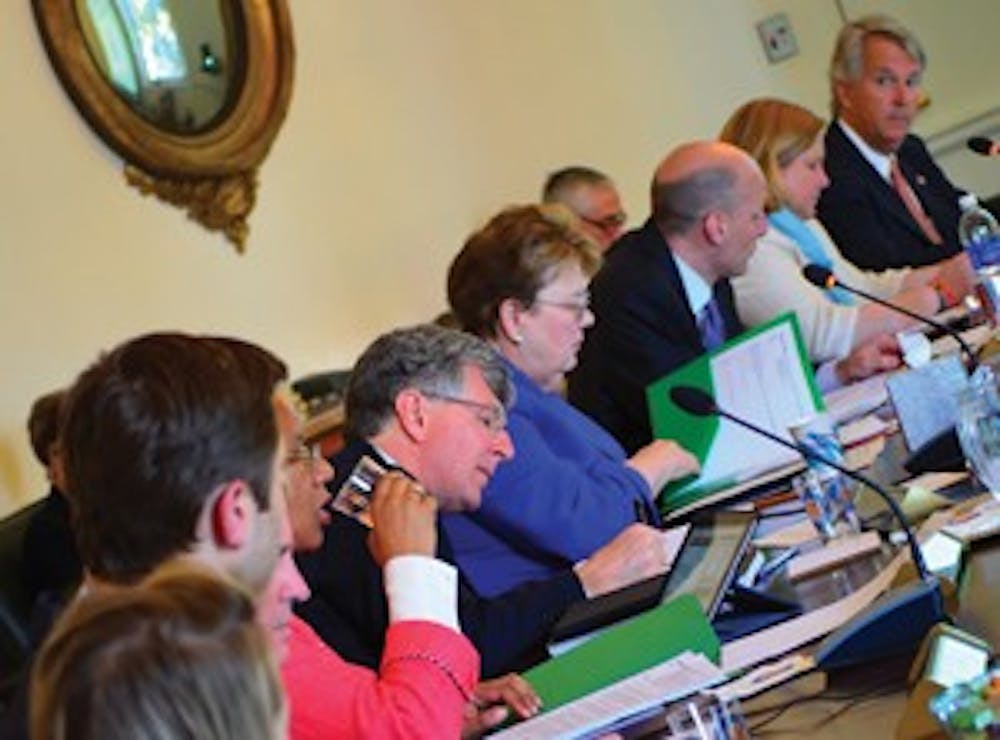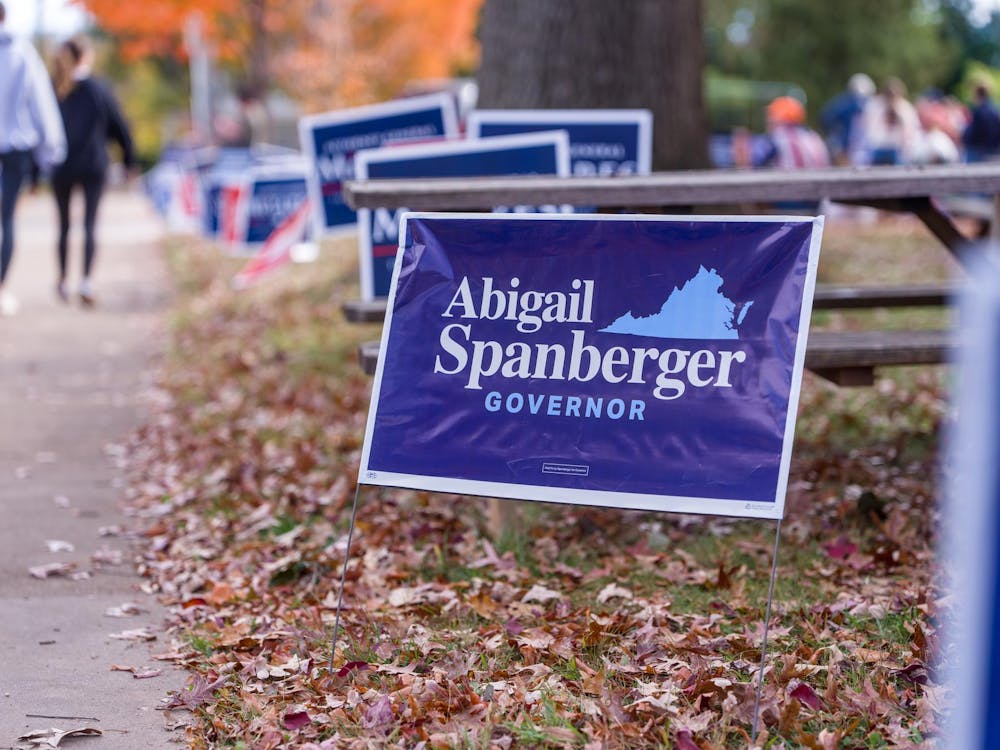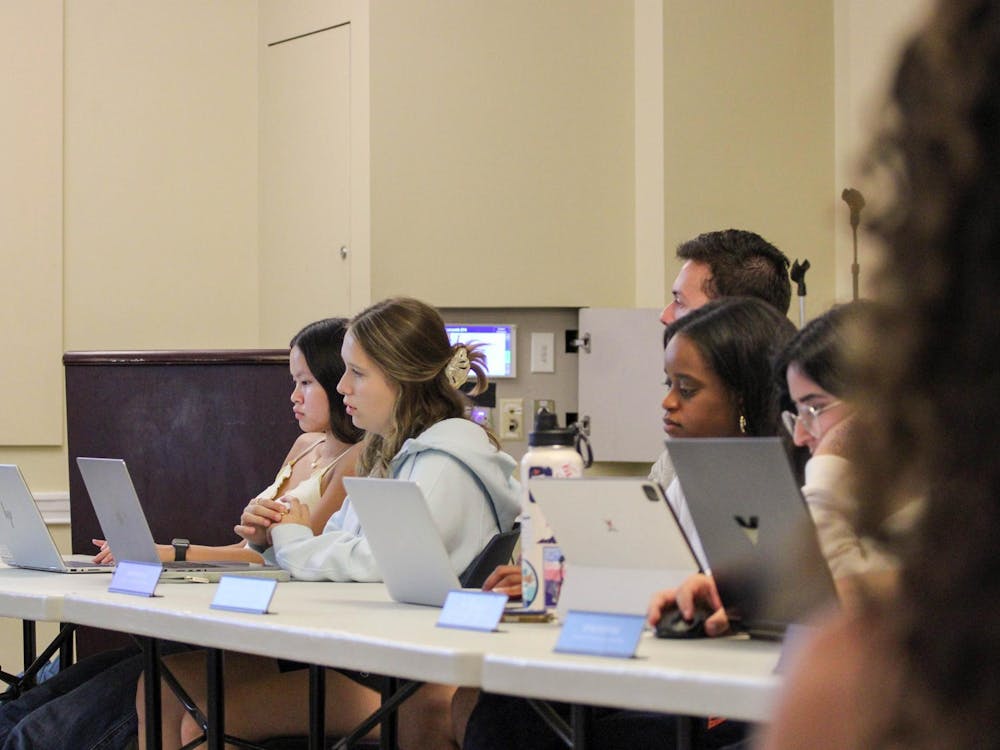The Board of Visitors Friday unanimously authorized a 3.7 percent and 4 percent tuition increase for in-state and out-of-state students, respectively.
Michael Strine, University executive vice president and chief operative officer, said the Board's decision represented the lowest tuition increase for in-state students in the last decade.
"In setting tuition each year, we have worked hard to remain mindful of the need to keep the cost of a University education affordable," University President Teresa Sullivan said in a University press statement released Friday. "For many years, we have been looked to as a leader in quality and value. With the changing economic landscape, including increased pressure on families and a 20-year trend of declining government investment in higher education, that is becoming more difficult with each year."
Strine said the University would increase investment in AccessUVa, the University's financial aid program, to "keep pace" with the tuition increase. The Board expects AccessUVa's budget to exceed $95.4 million during the 2012-13 fiscal year.
"We expect to meet full [financial] need for those qualifying students," Strine said. The University anticipates 34 percent of in-state students and 31 percent of out-of-state students will demonstrate need during the upcoming year, according to the statement.
Board members Friday said this year's decline in state funding drove the tuition increase, as it shifted the burden of higher education funding from the taxpayers to students and their families. According to a University press release, the Board also made the tuition hike to accommodate increased regulatory and state mandates and additional investment in financial aid, as well as to ensure the University continues to attract top faculty and a talented and diverse student body.
The increase for in-state students equates to a $430 rise in tuition and required fees, and it amounts to a $1,448 increase for out-of-state students.
Strine said the University has mitigated tuition price increases in recent years by limiting salary adjustments, managing workforce size through attrition, improving administrative efficiency and maximizing other funds.
As the General Assembly and the governor have not yet approved the state budget, the Board also passed a walk-on resolution which granted the Board's Executive Committee the authority to finalize the tuition and fee structure for the 2012-13 fiscal year after the state budget process ends, which is expected to occur this week.
Additional budget and fees changes include increases to the cost of room and board, meal plans and various graduate school programs.
First-year housing costs will increase 4.5 percent, for a total annual cost of $5,090, and meal plans will increase 3.7 percent on average, depending on the plan.
The Board's decision will also impact graduate students whose tuition will increase 3.7 percent for in-state and 2.3 percent for out-of-state graduate students.
The Board also approved new lab fees for the Nursing and Engineering Schools. The Nursing School will implement a $60 per credit hour clinical laboratory fee for both undergraduate and graduate courses with a clinical component. According to a University press release, the new fee will generate $300,000, two-thirds of which will fund technology updates in the school's laboratories.
The Engineering School will require a $32 per credit hour laboratory fee for all undergraduate engineering courses. The annual impact on students will be $750 a year, according to a University press release. The fee is expected to generate about $1.8 million, but similar to Nursing School laboratory fees, two-thirds will go toward updating technology in Engineering School laboratories.
Specific graduate tuition increases include: the Darden School's Master of Business Administration program, which will increase tuition four percent for in-state and 3.7 percent for out-of-state students; the Law School, which will raise tuition four percent for in-state and 3.6 percent for out-of-state students; the Engineering Graduate School, which will increase tuition 7.2 percent for in-state and 4.4 percent for out-of-state students; and the Batten School's Master of Public Policy Post-Graduate program, which will increase tuition 11.8 percent for in-state and 12.3 percent for out-of-state students. For the McIntire Master of Science in Commerce program, tuition will increase 2.5 percent for in-state and 2.6 percent for out-of-state students. There will be no tuition increase for the McIntire Master of Science in Accounting program.
The Board also approved the second-phase of the Commerce School's differential tuition plan, which raises the tuition differential between College undergraduates and third- and fourth-year Commerce students from $3,000 to $4,000 annually. Phase I of the Commerce School's differential tuition plan went into effect this academic year. Tuition differentials will cap at $5,000 annually, when Phase III begins at the start of the 2013-14 academic year.







